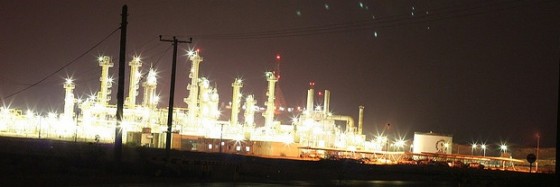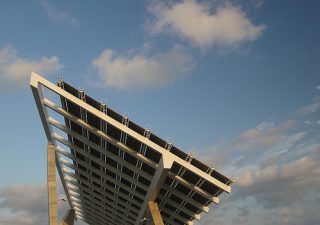 Israeli researchers say they can provide a more integrated way for surveying for natural gas. As the race is on to find natural gas in the Middle East Med region, could this tech help the region switch from oil?
Israeli researchers say they can provide a more integrated way for surveying for natural gas. As the race is on to find natural gas in the Middle East Med region, could this tech help the region switch from oil?
Prospecting — the search for valuable reserves such as gold, diamond and natural gas — isn’t just a matter of luck. It’s about knowing where to look. Now researchers at Tel Aviv University have modernized the hit-or-miss search with cutting-edge technology that scans the earth for signs of lucrative resources that could lurk beneath our feet. Combining a number of surveying techniques for the first time, Prof. Lev Eppelbaum has found a more accurate and in-depth land survey of Israel and the surrounding Mediterranean area than ever before. Their findings pinpoint the most likely places to find reservoirs of natural gas and oil.
Fifteen years in the making, their technique, which recently appeared in the journal Positioning, can be applied to any region in the world to more accurately identify possible riches below – before the costs of drilling or mining are incurred.
To create detailed structural-tectonic maps of Israel and the surrounding areas, Prof. Eppelbaum and his colleagues carried out an integrated survey using a variety of geophysical tools, including advanced analysis of magnetic, gravity, and temperature fields; utilization of seismic, magnetotelluric, and satellite imaging; and numerous well sections and outcropping studies.
All of these results were integrated with plate tectonics reconstructions.
Perhaps the most valuable results of their study, the researchers say, are a series of prospective maps which identify specific areas where geological-geophysical teams are most likely to be successful in the search for natural gas and our least favorite, oil.
Such information is not only of critical economic importance to Israel, but will also diversify oil and gas options for consumers worldwide.
Just off the shore of Haifa, a northern city along Israel’s coastline, there is believed to be a five hundred billion cubic meter area of gas reserve. The survey indicates that a few tens of kilometers away, there may be another reserve that would significantly increase the current estimated amount of gas. And Cyprus and Israel are keen on working together to locate more natural gas off the coast of Cyprus.
His predictions for additional oil reserves in deep water zones increase the estimated total of gas reserves by 200-300 percent, Prof. Eppelbaum predicts.
Warning that many researchers specialize too narrowly in a specific field or method, Prof. Eppelbaum stresses that an interdisciplinary approach had a direct impact on the success of the study. An integrated approach puts critical information firmly in the grasp of today’s scientists — and those “prospecting” for a brighter tomorrow.
Read more about natural gas exploration in the Middle East:
Greek Cyprus Fearful Over Natural Gas Drilling
Third Egyptian Natural Gas Pipeline Blown Up by Terrorists
Lebanon Challenges Israel’s Natural Gas Borders at Sea
Hezbollah Interferes With Israel’s Energy Business
Image of natural gas in Bahrain via octal



